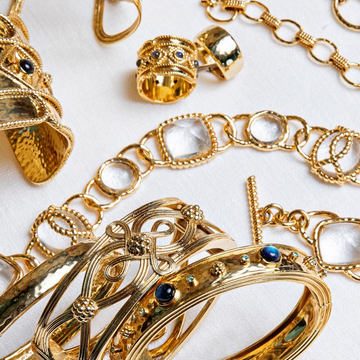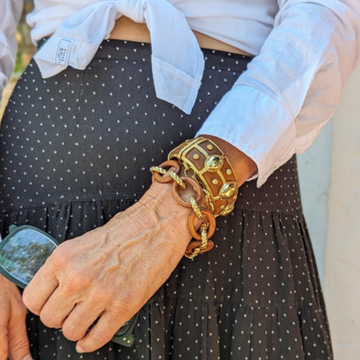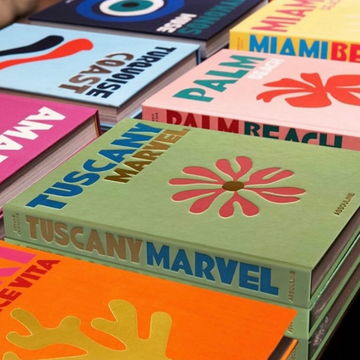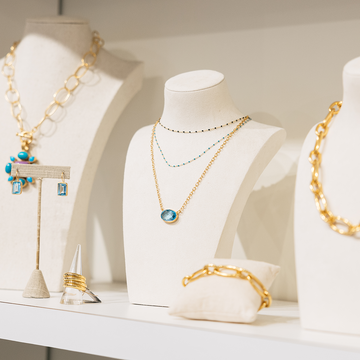
At first glance, giving and receiving gifts may seem simple, but gift-giving can cause stress and anxiety for many people. Research into the psychology of gift-giving suggests there are two goals to consider when giving someone a gift. The first is to make the recipient happy – this mostly depends on whether the gift is something the recipient wants. The second is to strengthen the relationship between giver and recipient. This is achieved by giving a thoughtful gift – one that shows the giver really knows the recipient – which usually means figuring out what someone wants without directly asking.
You can see the conundrum. To get someone the gift they most desire, the obvious thing to do is ask. While this approach may lead to high marks for desirability, it’s a set up for failure when it comes to thoughtfulness. So how do you give the best gift without asking the recipient directly for input?
We found an article written by Tiffanie Wen that may have the answer. "The Science Behind Giving Good Gifts", BBC News, December 6, 2019, https://www.bbc.com/worklife/article/20191206-the-science-behind-giving-good-gifts.
According to the article, research has actually shown that spending more does not always guarantee a well-received gift. One study found that the more expensive a gift, the more givers expected recipients to appreciate it. But while givers thought spending more conveyed more thoughtfulness, receivers didn’t associate the price with their level of appreciation.
“It seems pretty intuitive that if you spend more, you’re going to get a better gift. It turns out that there’s no evidence that recipients are sensitive to the cost of a gift when they figure out how much they’re going to enjoy that gift,” says Jeff Galak, an associate professor of marketing at the Carnegie Mellon Tepper School of Business in the US city of Pittsburgh.
Galak, who studies consumer behavior and decision making, acknowledges that you may have to hit a certain price threshold due to tradition or expectations. But once you meet that cost, “it doesn’t matter if you buy something more valuable”, he says. The gift itself is what matters most.
Think longer term.
Galak says the trick for giving a great gift is to think past the fleeting moment of actually handing it over.
“When givers give gifts, they’re trying to optimize on the moment they give the gift and see the smile on the recipient’s face right in that moment,” says Galak. “But what recipients care about is how much value they’re going to derive from that over a longer time period.”
In other words, it might not be exciting to watch a friend or family member open the gift of a movie-streaming subscription, so you might be less likely to give one. But a recipient may actually love it, since it’s a gift that can be enjoyed often over time.
Forget about uniqueness
Galak also suggests not getting hung up on giving the most unique gift out there. Sometimes something that many people desire or many others have can be exactly what someone wants.
One study showed that we tend to focus on a recipient’s unique traits and personality as we shop for them. But this hyper-specificity leads us to ignore other aspects of their wants and needs, which may make us buy them an inferior gift. We also tend to want to buy different gifts for multiple people, even if they might all be happier with the same thing – and might never compare gifts at all.
In order to feel like a good gift giver, people erroneously feel like they need to diversify the gifts, even at the cost of giving the best present, according to Galak. You might also overlook buying something that you own because you don’t want to undermine your own sense of individuality.
So that necklace of yours that your friend loves? Don’t avoid gifting an exact match matching pair just because you want to be unique.
Buy based on shared interests
To shop better, psychology professor Dunn suggests starting with something you have in common with the recipient. She says that instead of using your own preferences and adjusting them for how you and the recipient diverge, focus on what you share and pick a gift from there.
“People are better at choosing something for themselves,” she says, “so if you have something in common with somebody, get something that shares the same affinity, because something you would like will more likely be something they like.”
For an even stronger gift think about a common interest you share and buy something that your recipient can experience – say, concert tickets or a cooking class. Research has also shown that experiential gifts can bring you and the recipient closer, even if you don’t experience the gift with your recipient.
Ask them what they want
If you have nothing in common, though, Dunn recommends just asking the recipient what they want, or to work off a registry. In fact, research shows that people are more appreciative of gifts they ask for than ones they don’t.
“People want to be creative and surprise the recipient,” says Dunn, “but the better gift will be whatever it is they say they want.”
Galak agrees that the simplest way to make a person happy with a gift is asking them what they want. It’s not an answer most people like, he says, because good gifts are supposed to be a ‘surprise’ – even though science has disproven this.
“Asking somebody what they want is seen as taboo. And that’s a shame,” he says. “We would all be better off if we gave people what they want.”
Don’t overthink it
At the end of the day, don’t fret too much about giving a terrible gift: truly bad gifts are rare.
Unless something is wildly inappropriate, the recipient will feel some level of appreciation. Galak says that over the course of his research he has asked thousands of participants about gifts they have received, and he rarely hears someone talk about a bad gift. And even if you do give a sub-par gift to someone you are close to, you may be saved by your thoughtfulness. That’s because when someone gives a bad gift, it triggers the receiver to think about why the giver chose it.
“When someone does something puzzling that needs to be explained – like give a bad gift –that’s when you think about what’s on the other person’s mind,” says Nicholas Epley, a professor at the University of Chicago Booth School of Business who studies how we take other people’s perspectives and make judgements. His research shows that if your recipient feels like you at least spent a lot of time making your selection, they’ll appreciate the effort that went into choosing a less desirable gift.
In other words, the old adage ‘it’s the thought that counts’ really might be true!











